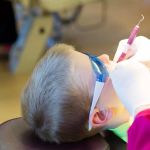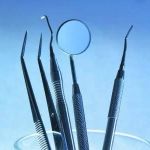- Understanding Bruxism
- Common Causes of Teeth Grinding
- Signs of Teeth Grinding
- How to Prevent Teeth Grinding (Bruxism)
- When to Seek Professional Help for Teeth Grinding
1. Understanding Bruxism
Teeth grinding, medically known as bruxism, is a condition where individuals involuntarily grind, gnash, or clench their teeth. This often occurs during sleep, but some people may experience it while awake. Although it might seem like a minor issue, teeth grinding can lead to serious dental and health problems, including tooth damage, jaw pain, headaches, and disrupted sleep.
Bruxism is a common condition affecting both children and adults. It can range from mild to severe, and in some cases, it may even go unnoticed until significant damage occurs. Understanding the causes, signs, and prevention methods of teeth grinding can help you protect your dental health and improve your overall well-being.
2. Common Causes of Teeth Grinding
Teeth grinding can be caused by a variety of factors. Some of the most common causes include:
- Stress and Anxiety: One of the most significant contributors to bruxism is stress. People experiencing high levels of stress or anxiety often grind their teeth as a way to cope with their emotions.
- Sleep Disorders: Conditions like sleep apnea or insomnia can lead to bruxism, as disrupted sleep patterns can cause involuntary clenching and grinding of the teeth.
- Misaligned Teeth: Teeth misalignment or an abnormal bite can make it difficult for the teeth to come together correctly, leading to grinding or clenching as the body attempts to compensate.
- Caffeine and Alcohol: Excessive consumption of caffeine or alcohol can increase the likelihood of teeth grinding, as these substances can heighten nervous system activity and muscle tension.
- Medications: Certain medications, such as antidepressants, may also cause bruxism as a side effect.
Identifying the underlying cause of your bruxism is essential to effectively prevent and manage it. If stress or anxiety is a trigger, addressing these issues with relaxation techniques may help alleviate the problem.
3. Signs of Teeth Grinding
If you’re wondering whether you might be grinding your teeth, there are several signs and symptoms to look out for:
- Tooth Damage: Worn-down enamel or chipped and cracked teeth are clear indicators of bruxism, especially if you notice these issues without obvious trauma.
- Jaw Pain: Tension and discomfort in the jaw, especially upon waking, is a common symptom of teeth grinding. You may also experience difficulty opening or closing your mouth.
- Headaches: Frequent tension headaches, particularly in the morning, can be a result of bruxism. The grinding motion puts pressure on the head and neck muscles, leading to headaches.
- Sleep Disruptions: If you share a bed with someone, they may notice your grinding sounds at night. You may also experience disrupted sleep due to the discomfort caused by teeth grinding.
If you experience any of these symptoms, it’s important to address the issue promptly to prevent further damage to your teeth and jaw.
4. How to Prevent Teeth Grinding (Bruxism)
Fortunately, there are several effective ways to prevent and manage teeth grinding:
- Stress Management: Since stress is a major cause of bruxism, practicing stress-reduction techniques such as meditation, yoga, deep breathing, or progressive muscle relaxation can help reduce the occurrence of teeth grinding.
- Use a Mouthguard: A custom-made mouthguard or night guard can protect your teeth from grinding while you sleep. It acts as a barrier, reducing the impact of grinding and preventing tooth damage.
- Improve Sleep Hygiene: Ensuring you get enough quality sleep is crucial in reducing bruxism. Establish a consistent sleep routine, avoid stimulating activities before bed, and limit the consumption of caffeine and alcohol.
- Correct Teeth Alignment: If your teeth are misaligned, consulting a dentist about orthodontic treatment can help alleviate the grinding caused by improper tooth contact.
- Regular Dental Checkups: Regular visits to the dentist can help identify any signs of teeth grinding early and provide appropriate solutions, such as a mouthguard or adjustment to dental work.
Taking preventive steps early on can significantly reduce the severity of bruxism and improve your dental and overall health.
5. When to Seek Professional Help for Teeth Grinding
If your bruxism is causing significant tooth damage, jaw pain, or headaches, it’s important to seek professional help. A dentist can assess the extent of the damage, offer customized treatment options, and help you manage the condition effectively.
If stress or anxiety is a major trigger, it may be helpful to consult with a therapist or counselor who can guide you through relaxation techniques or stress management strategies. Your dentist may also recommend a physical therapist if you’re experiencing muscle strain in the jaw or neck.
For those who are struggling to manage bruxism on their own, consulting a professional at Dentistry Toothtruth can provide valuable insights and treatment plans tailored to your individual needs.







 Edmond Dental Center: Michael Chandler, DDS5.0 (404 review)
Edmond Dental Center: Michael Chandler, DDS5.0 (404 review) Ramsey Dental Center4.0 (242 review)
Ramsey Dental Center4.0 (242 review) Chris Wong DDS4.0 (305 review)
Chris Wong DDS4.0 (305 review) Smile Academy Pediatric Dentistry4.0 (48 review)
Smile Academy Pediatric Dentistry4.0 (48 review) Glendale Holistic Dentistry - Los Angeles Dentists Group4.0 (19 review)
Glendale Holistic Dentistry - Los Angeles Dentists Group4.0 (19 review) Willamette Dental Group - Puyallup4.0 (117 review)
Willamette Dental Group - Puyallup4.0 (117 review) The Importance of Oral Health Education During Pregnancy for a Healthy Pregnancy
The Importance of Oral Health Education During Pregnancy for a Healthy Pregnancy Best Tips for Brushing Your Teeth Properly for Healthy Gums: Essential Techniques for Oral Health
Best Tips for Brushing Your Teeth Properly for Healthy Gums: Essential Techniques for Oral Health Why Skipping Dental Checkups Can Lead to Bigger Oral Health Problems
Why Skipping Dental Checkups Can Lead to Bigger Oral Health Problems Advantages of Porcelain Dental Restorations
Advantages of Porcelain Dental Restorations How Can Diabetes Cause Tooth and Gum Problems? Preventing and Managing Oral Health Issues
How Can Diabetes Cause Tooth and Gum Problems? Preventing and Managing Oral Health Issues Healthy Habits for Promoting Good Oral Health and Hygiene: Tips for a Healthy Smile
Healthy Habits for Promoting Good Oral Health and Hygiene: Tips for a Healthy Smile